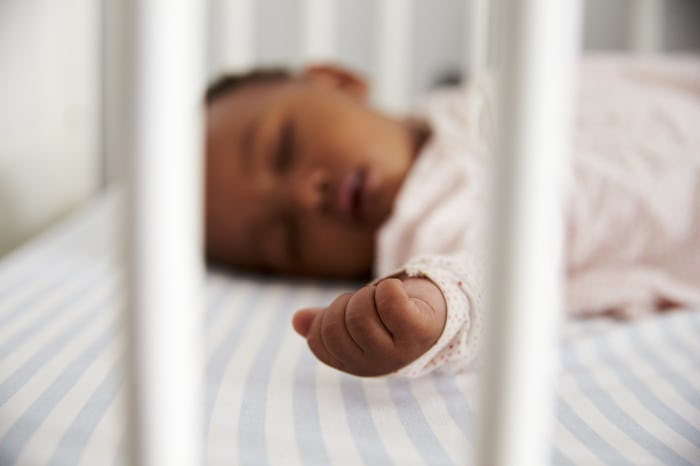Life
5 Controversial Baby Products That Are Banned Outside Of The United States
Keeping their children safe from harm is every parent's number one job. That's why there's a massive market for gizmos and gadgets that let you monitor a baby's every move and count every heart beat. For every item you see in stores that's meant to protect your child, however, there's another that could be putting them in danger. There are baby products that are banned outside of the U.S. that are still readily available here — so don't assume that just because something's being sold in a reputable store that it's perfectly safe for your little one.
The U.S. Consumer Product Safety Commission (CPSC) is responsible for determining which products are too dangerous for Americans to use. Back in 2010, the CPSC banned drop side cribs according to CBS News. With more than 30 infant deaths, the cribs posed an undeniable danger. Since then, they've been completely been removed from stores, and Babble noted that it's even illegal to donate a drop side crib or purchase one second-hand. There are other products, however, that the CPSC website simply advises people not to use — despite their widespread availability. That includes some of the items on this list, which other countries have gone ahead and pulled from stores.
Here are five products that you might want to carefully consider purchasing, based on the red flags that other countries have raised about them. Of course you as the parent are empowered to use your best judgement, but it doesn't hurt to be extra cautious about any product that you introduce your baby to, whether its on this list or not.
1Walkers
Watching a baby zoom around the house in a walker can be cute, but it's also super dangerous. Canada banned baby walkers back in 2004 according to Huffpost, but you can grab one at just about any baby store in America. NPR detailed a new call from the American Academy of Pediatrics (AAP) to ban baby walkers in the U.S., something the AAP has been pushing for since the '90s. A new AAP report found that baby walkers have caused hundred of thousands of injuries in the past few decades, even with new regulations and safer designs. The vast majority of those injuries came from babies falling down stairs while in their walkers.
2Self-Feeding Bottles
A self-feeding device designed to let a baby hold their bottle before they're ready to do it on their own has also been banned in Canada. The Children's Health and Safety Association noted that hands-free feeders increase the risk of a baby aspirating and choking as they drink. Self-feeders are still sold in the U.S., but you might want to skip buying one due to the potential dangers.
3Amber Teething Necklaces
Lots of moms in the U.S. swear by amber teething necklaces, but other countries have taken steps to crack down on them. Both France and Switzerland have banned pharmacies from selling amber teething necklaces, according to Pediatric Education, due to the risks of strangulation and choking. While they're readily available in the U.S., the American Academy of Pediatrics has warned parents against using them, saying they're both unsafe and ineffective as a teething remedy.
4Baby Sleep Positioners
Though not officially banned by law, baby sleep positioners became much harder to find in the U.K. after major retailers pulled them from shelves last year, according to the BBC. That move followed multiple reports of infant deaths due to accidental suffocation. American retailers, however, have not followed their U.K. counterparts and sleep positioners are still very common in the U.S. despite the risks.
5Knockoff Baby Neck Floaties
Certain inflatable baby neck floaties for sale online have been outlawed in Australia, according to the country's ABC news network. Officials there found that cheap, poorly made baby floaties were being sold on e-Bay, and promptly banned their sale due to the risk of injury or even death. Ultra cheap baby floaties can still be ordered online in the U.S., but doctors have warned against using them. In fact, the American Academy of Pediatrics noted that babies and kids should never use inflatable flotation devices of any kind, because it's all too easy for them to burst or deflate. Go for a life jacket, instead.
